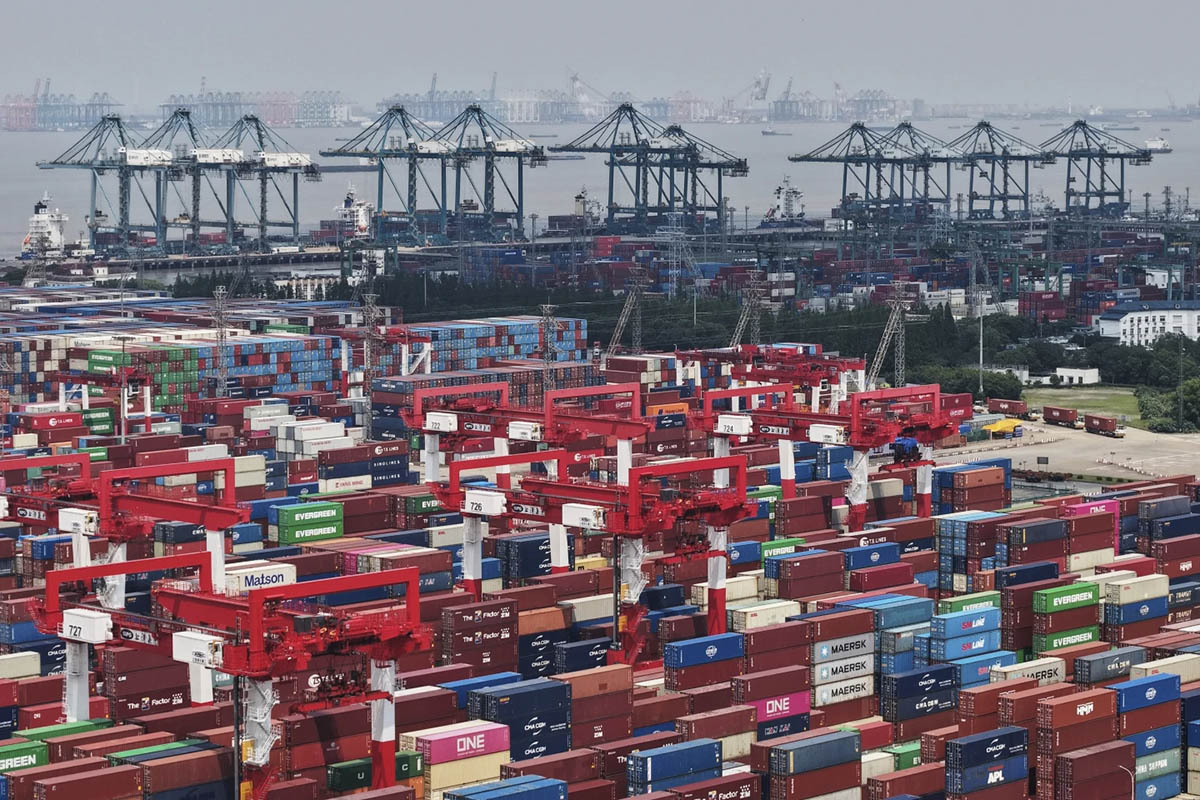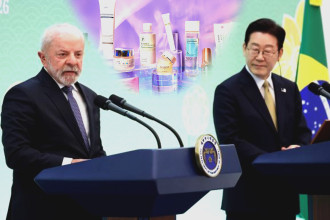
BANGKOK: The US and China have signed an agreement on trade, President Donald Trump said, adding that he expects to secure a deal with India soon.
Commerce Secretary Howard Lutnick told Bloomberg TV that it was signed earlier this week. Neither he nor Trump provided any details about the agreement.
“We just signed with China the other day,” Trump said late on Thursday.
Lutnick said the deal was “signed and sealed” two days earlier.
It was unclear whether the latest agreement differed from the one Trump announced two weeks earlier, which he said would make it easier for American industries to obtain much-needed magnets and rare-earth minerals. That pact cleared the way for trade talks to continue, while the US agreed to stop seeking to revoke visas of Chinese nationals on US college campuses.
China’s Ministry of Commerce said on Friday that the two sides had “further confirmed the details of the framework”. Its statement did not explicitly mention US access to rare earths, minerals used in high-tech applications that have been at the centre of the negotiations.
“China will approve the export applications of controlled items that meet the conditions in accordance with the law. The United States will cancel a series of restrictive measures taken against China accordingly. It is hoped that the United States and China will meet each other halfway,” it said.
The agreement follows initial talks in Geneva in early May that led both sides to postpone massive tariff hikes threatening to freeze much trade between them. Later talks in London set a framework for negotiations, and the deal mentioned by Trump appeared to formalise that agreement.
“The president likes to close these deals himself. He’s the dealmaker. We’re going to have deal after deal,” Lutnick said.
China has not announced any new agreements but said earlier this week that it was speeding up approvals of exports of rare earths, materials used in high-tech products such as electric vehicles. Beijing’s limits on exports of rare earths have been a key point of contention.
The Ministry of Commerce said on Thursday that Beijing was accelerating review of export licence applications for rare earths and had approved “a certain number of compliant applications”.
Export controls on the minerals apparently eclipsed tariffs in the latest round of trade negotiations after China imposed permitting requirements on seven rare earth elements in April, threatening to disrupt production of cars, robots, wind turbines and other high-tech products in the US and around the world.
China has also moved on the fentanyl issue, announcing last week that it would designate two more substances as precursor chemicals for fentanyl, making them subject to production, transport and export regulations. Trump has demanded that Beijing do more to stop the flow of such precursor ingredients to Mexican drug cartels, which use them to make fentanyl for sale in the US. He imposed 20% tariffs on Chinese imports over the fentanyl issue, the largest part of the current 30% across-the-board duties on Chinese goods.
The agreement struck in May in Geneva called for both sides to scale back punitive tariff hikes imposed as Trump escalated his trade war and sharply raised import duties. Some higher tariffs, such as those imposed by Washington on aluminium and steel and those related to fentanyl, remain in place.
The rapidly shifting policies are taking a toll on both of the world’s two largest economies. The US economy contracted at a 0.5% annual rate from January to March, partly because imports surged as companies and households rushed to buy foreign goods before Trump could impose tariffs on them.
In China, factory profits sank by more than 9% year-on-year in May, with automakers suffering a large share of that drop. They fell by more than 1% year-on-year in January–May.
Trump and other US officials have indicated they expect to reach trade deals with many other countries, including India.
“We’re going to have deal after deal after deal,” Lutnick said.
By RSS/AP






